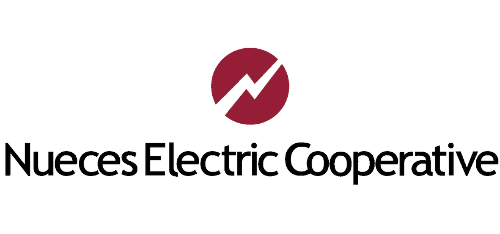ENERGY FOR TEACHERS AND KIDS
We hope you find these resources helpful for your children or students. The electric industry grows and changes daily. Staying updated and knowledgeable on the latest technology and advances in this field is a priority for NEC.
As a community partner, we want to help you educate your students about electricity, resources, and how electricity is made. Click here to find out how you can schedule a field trip at Nueces Electric Cooperative!
Visit energy.gov for an energy awareness activity book.
Click here to view printable educational energy related coloring pages.
Electricity 101
Electricity is produced, or generated, by the turning of turbines. In most power plants, these turbines are turned by pressurized steam. The steam is created by the burning of coal or other fossil fuels in massive boilers. In the case of hydroelectricity, the force of rushing water turns the turbines.
Once the turbines generate the electricity, its voltage is significantly increased by passing it through step-up transformers. Then the electricity is routed onto a network of high-voltage transmission lines capable of efficiently transporting electricity over long distances.
At the electric distribution substation that serves your home, the electricity is removed from the transmission system and passed through step-down transformers that lower the voltage. The electricity is then transferred onto your local electric co-op’s network of distribution lines and delivered to your home. There, the electricity’s voltage is lowered again by a distribution transformer and passed through your electric meter into your home’s network of electric wires and outlets.
If you come home and find your clock radio flashing 12:00, it’s not necessarily a signal that your power has been out.
Most electrical disturbances last just a moment. A tree branch may have brushed against a power line or an animal may have scampered across it. When that happens, your local electric cooperative goes to work to make sure its lines aren’t being damaged - because damaged wires can mean prolonged power outages.
When something lands on a power line, an oil circuit recloser (OCR) opens to interrupt the flow of electricity - sort of like your circuit breakers do at home. Once the equipment senses that the problem has moved on, the OCR closes and electricity is restored. On a rainy or windy day, this may happen repeatedly.
Still, it’s better than the alternative - a damaged line that requires homes to be without electricity while it’s being repaired. It’s sort of an insurance policy for you and your electric co-op.
You know your lights and television work, and you get a bill every month, but do you actually know how your electricity is measured?
It’s fairly simple, really. Electricity is measured in units of power called watts. Like pennies, watts are pretty small. For most purposes, electricity is measured in kilowatts, or 1000-watt units. The watt or kilowatt rating on electric devices - such as light bulbs - tells you how much electricity it requires. The higher the rating, the more electricity it uses.
The number of watts used is then multiplied by the number of hours of use, and the result is expressed in kilowatt-hours or kWh.
For example, one kWh is the amount of energy that is required to power one 100-watt light bulb for 10 hours.
100 watts x 10 hours = 1 kWh
Likewise, one kWh is needed to burn ten 100-watt light bulbs for one hour.
1000 watts x 1 hour = 1 kWh
